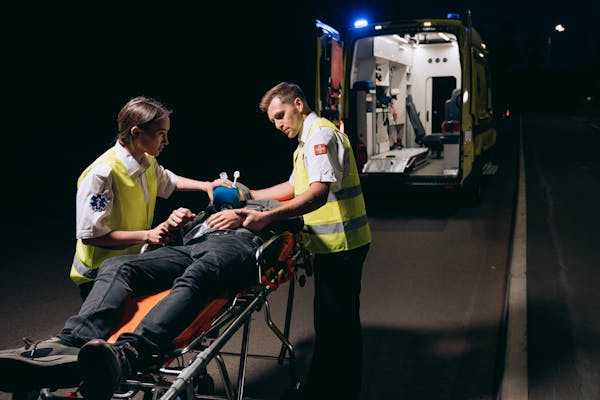Written By Katherine Swarts
Read Time 3 Minutes
In the United States, over 45,000 people die each year from suicide—the country’s twelfth leading cause of death. Many of these tragedies could be prevented if prompt diagnosis and treatment were available (and encouraged) for everyone showing symptoms of mental illness. Or even if an empathetic listening ear were there when needed.

Such was the goal when the Substance Abuse and Mental Health Services Administration introduced the National Suicide Prevention Lifeline, 1-800-273-TALK, in 2005. Comprising over 200 local crisis centers, the Lifeline is staffed 24/7 to provide free counseling to anyone who calls for help in dealing with suicidal thoughts or other mental-health-related struggles.
Starting Saturday, July 16, 2022, assistance for mental health issues will take another major step forward.
Dial 988
Everyone knows to call 911 if someone suffers a heart attack or drug overdose. However, once a mental health emergency reaches the 911 stage, it may be too late to prevent tragedy. Just as bad, many 911 calls have themselves ended tragically after an armed officer misinterpreted mental-illness-influenced behavior as threatening. Even “simply” being taken into custody often means being handcuffed and transported in a police vehicle—a traumatic experience for someone already in the throes of panic, and also a reinforcement of the stigma that says people with mental illness are dangerous, violent, and potentially criminal.
Now, there’s an alternative that gives the National Suicide Prevention Lifeline its own simple three-digit number. Starting July 16, if you feel suicidal or paranoid, or have a family member displaying symptoms of mental instability, the recommended first step is to call 988.

988 Goals
Besides a quick connection for help defusing dangerous situations, the 988 emergency number (also usable for text and chat) is designed to provide:
- Collaboration with 911 providers to expand crisis-response options, reduce demand on emergency services, and enable dispatchers to quickly direct callers to the best source of help
- Referrals to qualified counselors and community resources
- Trained follow-up to check on progress after initial calls
Improved access to early intervention where mental illness is suspected
Never Ignore a Potential Crisis
Improved access to crisis counseling is also intended to reduce stigma surrounding mental illness—the same stigma that prevents people from seeking help due to shame or fear. Mental disabilities are like cancer and structural weaknesses: they don’t go away when ignored, they just get worse until they reach the point of potential disaster.
You don’t have to be experiencing an immediate crisis to call a crisis hotline: you just need reasonable cause to believe a crisis could occur unless action is taken. Get help if you or someone close to you experience any of the following symptoms:
- Active depression or withdrawal for more than a few days
- Losing interest in favorite activities
- Decline in academic or job performance
- Drinking or using drugs to an obviously unhealthy extent
- Describing life as “hopeless” and oneself as “worthless”
- Giving away possessions, or taking other actions symptomatic of not expecting to live much longer
- Active threats of suicide (it can’t be said enough: this symptom should never be dismissed as “just talk”)
Don’t give tragedy a chance to happen. You don’t have to despair in the face of mental health crisis: help is available!
Contact address for more information: 988Team@samhsa.hhs.gov
See also: Emergency and Mental Health app reviews from MindApps and BridgingApps’ newly updated site.

